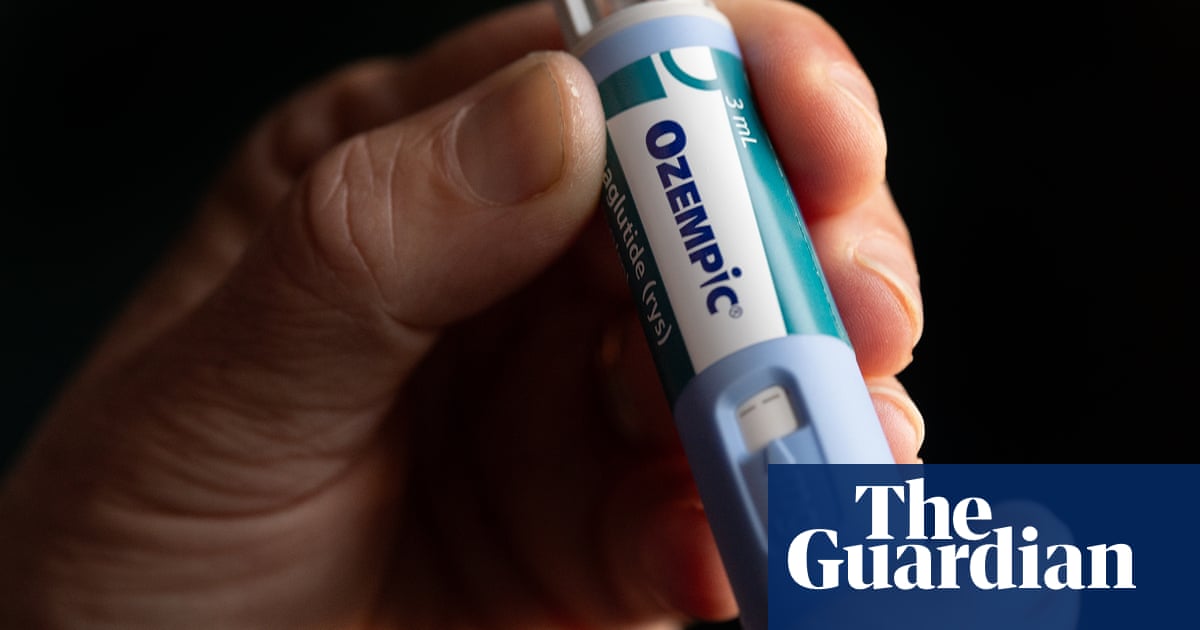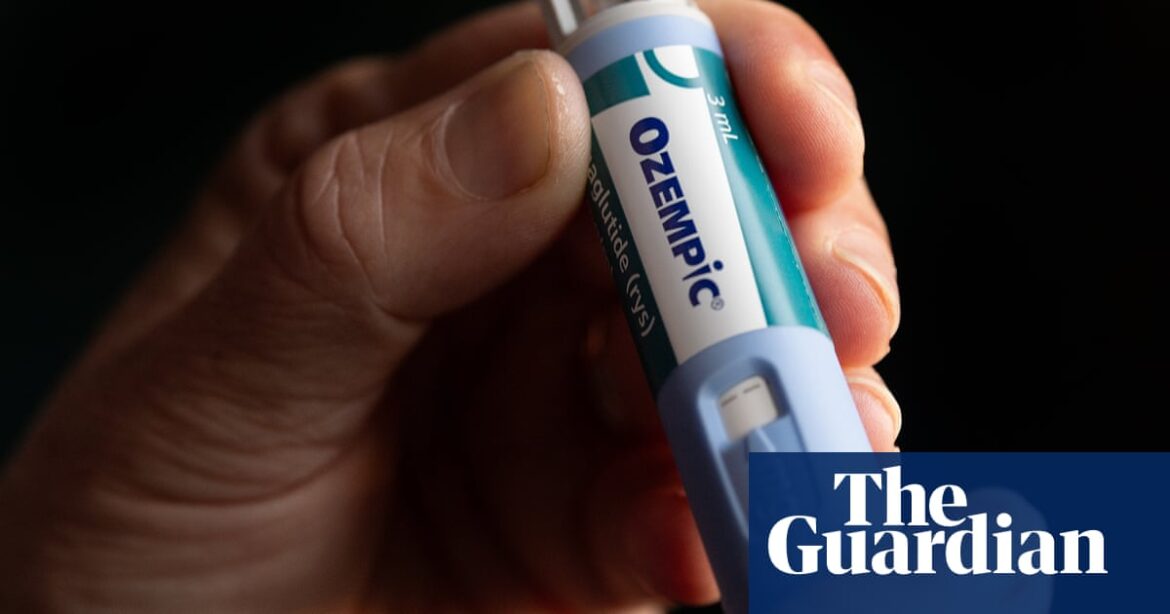
Giving weight loss jabs to everyone eligible for them could boost the UK economy by £4.5bn, according to research.
Worldwide, about 3.8 billion people over 25 and just under 750 million children and young people are forecast to be overweight or obese by 2050. In England, 26.5% of adults are obese, while across the UK 4.6 million are diagnosed with type 2 diabetes.
Obesity and type 2 diabetes are estimated to cost the UK £100bn a year. While semaglutide, better known as Wegovy and Ozempic, has been linked to a reduced risk of 42 conditions, the impact on quality of life and productivity has until now been less understood.
A new study, presented at the European Congress on Obesity in Málaga, Spain, examined data from 2,660 participants in three semaglutide clinical trials in the UK who were living with obesity and/or type 2 diabetes. They found that taking semaglutide enabled them to each work five extra days and carry out 12 days of unpaid work such as volunteering or childcare, as well as reducing their consumption.
The authors valued these productivity gains – the annual “net production value” – at an average of £1,127 per person.
That equates to £4.31bn in potential annual net productivity gains for everyone living with severe obesity and £200m for those with type 2 diabetes, who would be eligible for semaglutide on the NHS – about 4 million people. National Institute for Health and Care Excellence guidelines recommend semaglutide for patients with a BMI of at least 35 and one weight-related condition.
Robert King, a senior health economist at the consultancy Lane Clark & Peacock and co-author of the research, said the study showed there was a wider societal impact of weight loss jabs that needed to be taken into account.
“Even if you are getting a relatively small [productivity] gain per person, it really does stack up to large impact at the population level. So treating these chronic diseases at scale, prioritising them for treatment is really important.”
Naveed Sattar, a professor of cardiometabolic medicine and honorary consultant at the University of Glasgow, said that while the potential cost benefits for society from weight loss medication extended well beyond medical outcomes, the relative high cost of the drugs “means that the total costs for the medicines is still considerably greater than the likely total health and societal gains.
“This means for now, countries cannot afford to treat all those who stand to benefit, but rather must restrict use to those with highest needs and where costs are most likely to be recovered from health gains.”
Wes Streeting, the health secretary, said: “These drugs could have colossal clout in our fight to tackle obesity and in turn get unemployed Britons back to work, and we will carefully consider the results of this important research.”
Weight loss jabs also show potential for treating addiction. A separate study presented at the Málaga congress found that patients taking liraglutide or semaglutide for weight loss “effortlessly” cut their alcohol consumption by almost two-thirds in four months.
Researchers in Ireland and Saudi Arabia collected data on the alcohol intake of 262 overweight adults who were prescribed the medication, of whom 188 were followed up for an average of four months. They were categorised as non-drinkers, those consuming less than 10 units a week, and regular drinkers, who consumed more than 10 units.
The study found that patients’ typical alcohol intake decreased from 11.3 to 4.3 units a week. For regular drinkers, the effect was even larger, from 23.2 to 7.8 units.
Prof Carel le Roux, of University College Dublin and the lead author of the study, said: “The exact mechanism of how GLP-1 analogues reduce alcohol intake is still being investigated but it is thought to involve curbing cravings for alcohol that arise in subcortical areas of the brain that are not under conscious control. Thus, patients report the effects are ‘effortless’.”
The effect was slightly greater than that in patients prescribed nalmefene to treat alcohol use disorder in Europe.
Dr Stephen Burgess, the group leader at the University of Cambridge’s Medical Research Council Biostatistics Unit, said that while the study was observational, the findings were “exciting”.
He added: “These drugs are generally safe and well-tolerated, and currently there are few effective treatments for alcohol addiction, so this is an exciting possibility for reducing harm in heavy drinkers.”
Prof Kamila Hawthorne, the chair of the Royal College of GPs, said: “There is clearly a lot of potential for weight loss drugs – which are still very new medications – to have wide-ranging benefits for patients, so it’s good to see research being undertaken to explore these.
“However, it’s also important that medical interventions aren’t seen as a silver bullet for either weight loss or to suppress cravings for alcohol. As with any medication, they do not come without risk and can cause side-effects which range in seriousness.”
Source: theguardian.com



